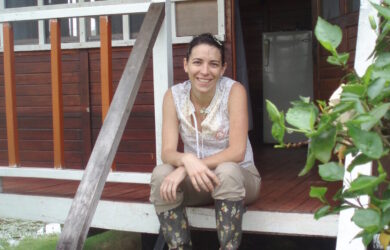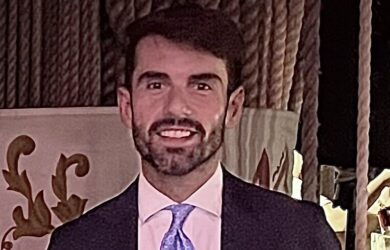
Marie Brunet has won a prestigious award for her research into a potential drug treatment for Cystic Fibrosis.
A Gates Cambridge Scholar has been awarded the National Silver Medal of the National Veterinary School of Paris for her thesis on a potential drug treatment of Cystic Fibrosis.
Marie Brunet, whose thesis is titled The effect of genistein on Cystic Fibrosis Transmembrane Regulator (CFTR) mediated chloride secretion: a study on murine colon mucosa, was awarded the Medal in mid-November.
Cystic Fibrosis is a life-threatening inherited disease which affects the internal organs, especially the lungs and digestive system, by clogging them with thick sticky mucus. This makes it hard to breathe and digest food.
Marie, who is doing a PhD in Pharmacology [2011], did her veterinary studies at the National Veterinary School of Paris and worked with the School and the Pharmacology Department of Cambridge University on her thesis after making contact during a summer course.
It looked at the action of the natural drug genistein, found in foods like tofu and soy, on the Cystic Fibrosis Transmembrane Regulator [CFTR] which can cause cystic fibrosis if altered. CFTR is a transmembrane chloride channel which can be mutated in different ways and leads to a change in a person’s electrochemical balance.
Genistein has been shown to enhance chloride flux through the CFTR which reduces the symptoms of cystic fibrosis and increases life expectancy. Marie looked at what concentrations of genistein were needed to have a positive effect on CFTR, and if those levels could be reached through a soy-rich diet. She also studied two different ways – one direct and one indirect – that genistein acts on CFTR in an effort to understand its role.
She says further studies are needed to confirm her findings, but funding for cystic fibrosis has been weighted against drug treatment and in favour of gene therapy.
Marie states: “After the great progress made in gene therapy for Cystic Fibrosis by English and American research groups, the alternative of drug therapy has been neglected. And despite an absence of breakthrough discovery and a situation that has not much evolved since the 1990’s in gene therapy, there remains little interest in drug alternatives. I have now moved my research towards a different area, focusing on inflamation. However, I hope this award will increase awareness of the need for pharmacological research on Cystic Fibrosis.”
She adds that her research would not have been possible without the support her supervisor in Cambridge, Dr Lesley MacVinish, and her supervisor at the National Vet School of Paris, Dr Fanny Pilot-Storck. She says: “They kindly guided my first steps as a scientist and fostered my passion for understanding molecular pathways that could make a difference and improve the lives of many.”
Picture credit: N J White and Creative Commons.












